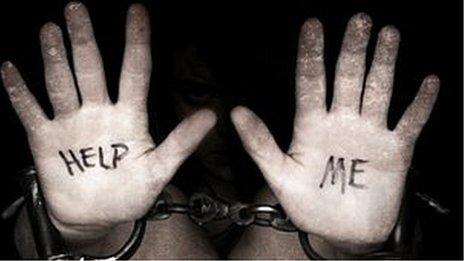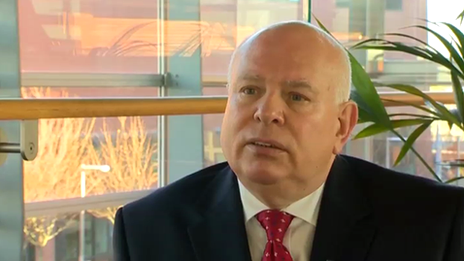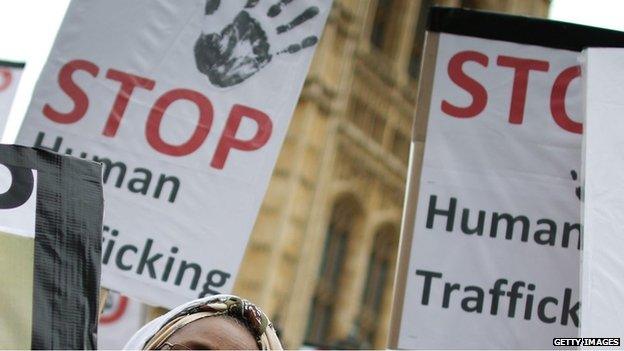Closer working needed to end slavery, say Welsh AMs
- Published

A true picture of slavery in Wales is hard to establish, Christine Chapman says
Work to wipe out slavery and human trafficking in Wales needs better co-ordination, according to assembly members.
A committee found that some services lacked knowledge - including about the role of the Welsh anti-slavery co-ordinator.
Dyfed Powys Police and Crime Commissioner Christopher Salmon, external told AMs he had never heard of the position.
The post was the first of its kind in the UK when it was created in 2011.
Christine Chapman, who chairs the assembly's Communities, Equality and Local Government Committee, said a close relationship between police and other services would help "eradicate this inhumane issue".
But the committee expressed concerns that that the role of anti-slavery co-ordinator currently had "very limited capacity" to "drive the anti-slavery agenda forward" and called on ministers to provide the necessary resources.
Stephen Chapman, a former deputy director of the UK Border Agency and ex-Metropolitan Police officer, was the second person appointed to the role in 2012.
'Retribution'
The Cynon Valley AM, Ms Chapman added: "A true picture of modern-day slavery in Wales is difficult to establish because many of the survivors are too afraid to come forward or receive support for fear perhaps of deportation in some cases or retribution from their captors.

Stephen Chapman is Wales' second anti-slavery coordinator
"In that regard we are pleased to see the efforts by the Welsh government to have a clearer understanding of the problem in Wales and we welcome the work of the anti-slavery co-ordinator.
"But we have concerns that, certainly in some key areas including the police, health and education sectors, not enough is known about the role of the coordinator and we urge the Welsh government to establish a closer working relationship between these services to help eradicate this inhumane issue."
The Welsh government launched a campaign, external to raise awareness of slavery and human trafficking earlier this year.
UK ministers announced plans for a Modern Slavery Bill, external in the Queen's Speech, consolidating existing criminal offences relating to slavery into one piece of legislation.
Those convicted of the most serious offences, including trafficking, could be jailed for life.
- Published4 June 2014

- Published3 February 2014

- Published2 December 2012
